Kingsway Taps Into a Type of Nostalgia You Wouldn't Expect
Some games aim for the feel on an older game. Kingsway aims for a certain operating system.
This article first appeared on USgamer, a partner publication of VG247. Some content, such as this article, has been migrated to VG247 for posterity after USgamer's closure - but it has not been edited or further vetted by the VG247 team.
These days, you can't throw a rock without hitting a spiritual successor. There are a number of games from independent developers and major publishers that seek to recapture the feeling of a classic title. It's about about trying to find and hold onto something that a developer feels has been lost.
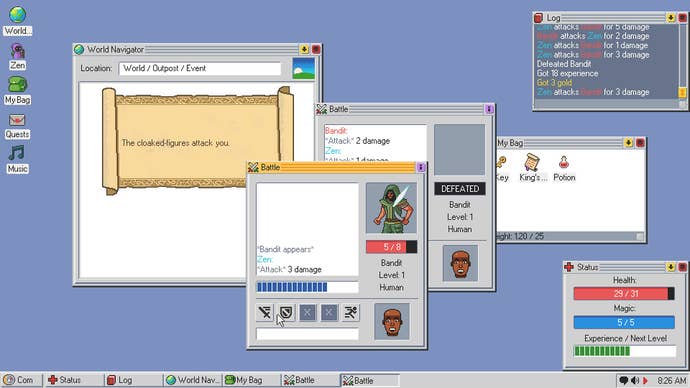
Kingsway from Andrew Morrish and publisher Adult Swim Games is a "spiritual successor" of a sort. It's not really a throwback to any single classic role-playing game. It doesn't have a PC adventure game that you can point to and say, "That's where this is coming from." (The closest analog for my money is Papers, Please.) Instead, Kingsway is about tapping into nostalgia for something else: an operating system.
Kingsway evokes the feel of the classic Windows operating systems, notably Windows 95. That was the operating system for a number of older PC gamers and Kingsway is focused on playing with those memories. The progress bars, icons, text, and even pop-ups are meant to evoke the Windows you remember, whether those memories are good or bad.
After choosing your 2D avatar, a starting class, and a bonus item, you're ushered off a ship onto the Western shore of a continent. Your task is to explore and fight your way to the east. You click distinct points on your map and your character travels towards them, probably getting attacked by monsters along the way.
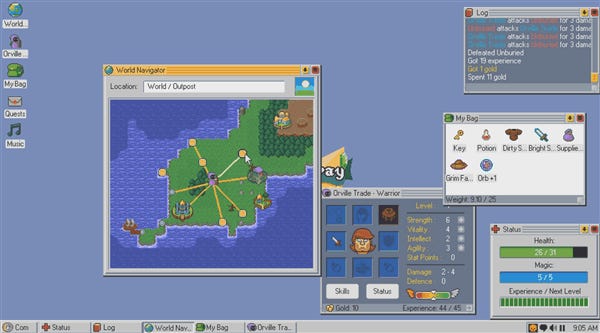
When I say that Kingsway evokes Windows 95, I mean that the comparision bleeds into every facet of the game. Your world map is clear callback to Netscape Navigator. Your inventory looks like a Windows 95 file folder. Quest and level up notifications go next to the clock on the bottom taskbar, where all open windows also reside. Music options have a Winamp-esque skin. The error noises sounds like they're straight out of the 80s and 90s, back when they were short, angry harumphs from your desktop instead of a polite ding. Death is presented as a Blue Screen of... you get the idea.
Combat is in real-time, with the slight feel of a turn-based encounter. When an enemy blocks your path, a pop-up window will appear. That pop-up will show the enemy in question, all of the attacks you have, and the time until their next attack. To simulate an enemy's agility, the window moves around the screen, with faster and stronger enemies' windows flitting about your screen. Running into multiple enemies gives you a stack of successive windows you have to manage. Once you pass the early stages of Kingsway, enemies start having special attacks with their own additional pop-ups you have to click upon to avoid. Clutter is complexity and difficulty in Kingsway, ending with the YOU DIED prompt in endless pop-up windows.
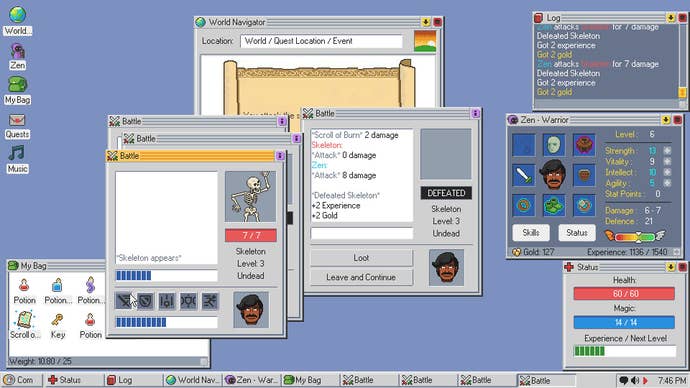
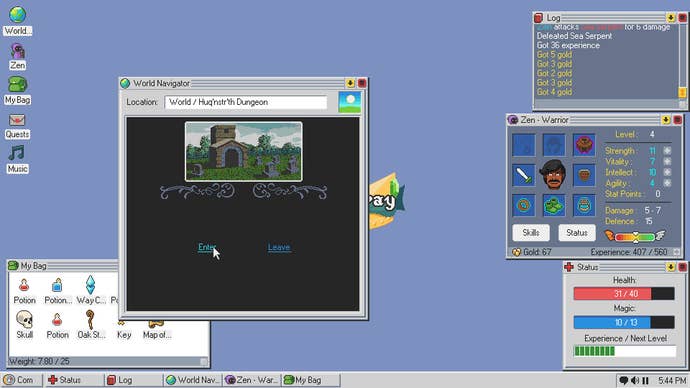
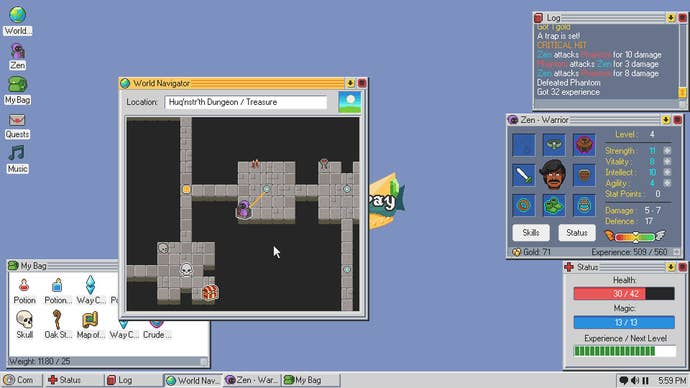
Kingsway keeps you moving via a slow cloud of darkness coming from the West, similar to the enemy fleet in FTL. You have time to explore, but you can't hit every travel point along your way. Most of the regular points along your journey have a text adventure-style scene that plays out, where you have to decide to save potential victims, gain advice, enter houses, or bargain with mysterious figures. There are dungeons to plunder with stronger mobs and great loot, alongside towns with shops and guilds. There are random structures, curiosities along your path. The player is forced to make choices; you have a limited amount of time and resources available to you.
Making a set of wrong choices leads to death and death is permanent in Kingsway. It's a roguelike RPG, with the continent being regenerated anew for each run. The only thing that carries forward are the gems you earn (you get more the farther you make it) and a single boon, one item from your last run that goes into a collective pool. Gems can also be used to purchase changes to the overall UI of the game: changing the color of the desktop, unlocking keyboard shortcuts, and more.
You start again, you select a new name and avatar, and use your stash of gems to purchase a boost or one item from your existing pool. Then you head out again. And again. And again. Kingsway isn't easy. You'll start to understand how to improve your early game with each run, but some of teh random enemies are there to prevent you from becoming to cocky. You're supposed to die and restart, my friend. That's the name of the game.
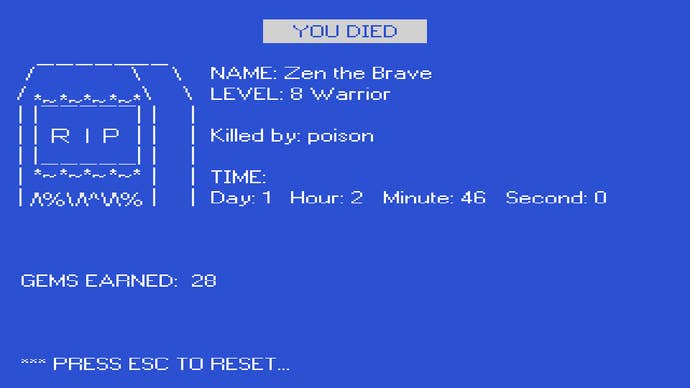
Kingsway doesn't reinvent the roguelike. It doesn't even reinvent the RPG. But the attention to detail is impressive and if you lived the era Kingsway is calling back to, you'll find an enjoyable adventure through your memories. Which is to say I had fun. Kingsway makes me feel like my $9.99 was well spent for the time I put into it.

